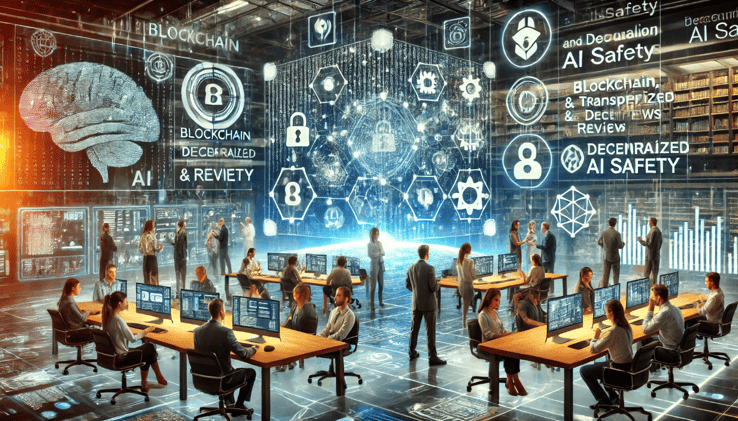As artificial intelligence continues to integrate into society, the push toward developing faster systems often overshadows the equally critical need for AI safety. With the AI market projected to reach $407 billion by 2027 and an expected annual growth rate of 37.3% from 2023 to 2030, prioritizing commercial interests can lead to significant concerns regarding the safety and ethics of AI development.
Eroding Public Trust
The relentless focus on speed and efficiency in the AI industry is eroding public trust. There exists a substantial disconnect between the industry’s ambitions and the public’s concerns about the risks associated with AI systems. As AI becomes more integrated into daily life, it is crucial to remain transparent about its operations and potential risks. Without transparency, public trust will continue to diminish, hindering the wide acceptance and safe integration of AI into society.
Lack of Transparency and Accountability
The commercial drive to rapidly develop and deploy AI often results in a lack of transparency regarding these systems’ inner workings and potential risks. This opacity makes it challenging to hold developers accountable and address the problems AI may introduce. Consequently, stakeholders must prioritize ethical considerations to ensure AI operates responsibly and safely.
Ethical Concerns and Bias
AI systems are increasingly susceptible to ethical dilemmas and biases that can compromise decision-making processes. These issues arise from the algorithms used in training AI models, which may inadvertently perpetuate societal biases or lead to unfair outcomes. Addressing these challenges is essential to ensure equitable access to AI technologies.
Concentration of Power and Wealth
The rapid advancement of AI technology has led to an unequal distribution of opportunities. Certain entities, driven by financial and strategic interests, have disproportionate influence over the development and deployment of AI systems. This concentration of power can limit innovation and perpetuate inequalities in technology accessibility.
The Threat of Rogue AI
Rogue AI refers to AI systems with objectives that conflict with human values or intentions. These autonomous agents may pose risks to global stability and individual well-being if not properly regulated. Safeguarding against such threats requires robust ethical guidelines and oversight mechanisms.
Conflict of Interest in Internal Reviews
Internal reviews within organizations often reflect biases influenced by self-interest rather than objective assessments. Without independent oversight, there is a heightened risk of AI systems malfunctioning or causing harm due to internal conflicts of interest. External evaluations can mitigate these risks and ensure transparency.
The Solution: Decentralized Reviews
To address the challenges posed by centralized decision-making processes, decentralized review mechanisms are essential. By distributing decision authority across different groups within an organization, we can enhance accountability and reduce the risk of unethical AI deployments.
Hats Finance’s Decentralized AI Safety Program
Hats Finance has implemented a decentralized AI safety program to ensure responsible AI development and deployment. This initiative promotes ethical practices and safeguards against potential risks associated with AI technologies.
Steps in the Decentralized Review Process
The decentralized review process involves multiple stakeholders contributing their expertise, promoting transparency and accountability. By pooling diverse perspectives, organizations can identify and mitigate risks effectively while ensuring compliance with ethical standards.
Transition to a DAO
Adopting a decentralized autonomous organization (DAO) model allows for continuous improvement of AI safety practices. By empowering communities of interest, DAOs foster innovation and collaboration in developing responsible AI technologies.
Conclusion
Prioritizing speed over AI safety introduces significant risks, including public trust erosion, ethical dilemmas, and potential threats to global stability. Implementing decentralized review processes and ethical safeguards can mitigate these challenges. By fostering transparency, accountability, and inclusivity, we can ensure the safe and equitable deployment of AI technologies for the benefit of society.



